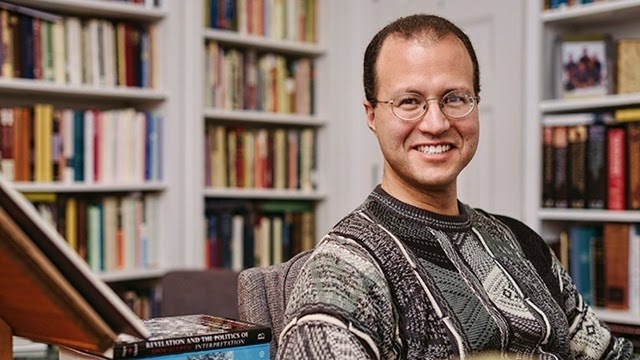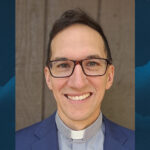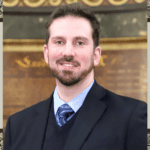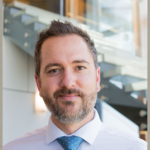
David deSilva brings his years of experience as a biblical scholar to the church in the form of sermons delivered to his home congregation. The reflections in In Season and Out will inform and inspire your understanding of Scripture. In this interview, we ask deSilva about his pastoral experiences and how his scholarship informs his preaching.
Lexham Press: What is the story behind this book?
David deSilva: I served as interim pastor at Port Charlotte United Methodist Church in Florida for a nine-month period in 2017-2018. While I threw myself into all aspects of the work, I was especially keen on crafting engaging and challenging sermons that connected my sisters and brothers with the vision communicated in the Scriptures for their formation and mission. Toward the end of this period, I began to think that these sermons—now perhaps encountered more as scriptural reflections and devotions—might serve a similar purpose for sisters and brothers beyond my congregation.
LP: Many of the sermons in your book follow the Revised Common Lectionary. For those who are unfamiliar with preaching by a lectionary, why would you recommend it?
DD: A lectionary is a schedule of scripture readings for worship services. The Revised Common Lectionary, adopted by many historic denominations (though followed with varying degrees of strictness), provides a three-year cycle of four readings for each Sunday and major festival of the Christian Year—readings from the Old Testament, the Psalms, the Epistles, and the Gospels. One great advantage of following the lectionary, at least for a few years in the course of one’s ministry, is that it exposes the congregation to—and forces the preacher to engage—texts from across the “whole counsel of Scripture” rather than from those texts towards which a given preacher tends to gravitate. Another advantage is that it tends to lead preachers to put the Scriptures’ agenda ahead of his or her own. A drawback of the “sermon series” approach is that a preacher comes up with what he or she wants to proclaim over the course of a few weeks and then finds the Scriptures that will allow him or her to proclaim that message. I have heard too many sermons of that kind where the power of a Scriptural text has been harnessed for a message that does not grow out of patient listening to that text, so as to proclaim its message.
LP: What is your favorite season of the year—for preaching or otherwise—and why?
DD: It has to be Advent, the season of the four Sundays leading up to Christmas. Advent calls us both to look back to what God has done for us in the incarnation of the Son and all that followed this event (without the incarnation, no redemption!) and also to look forward to Christ’s coming a second time in glory to judge the world and consummate his rule. If we keep these two compass points firmly and foremost in our minds, we can more faithfully and fruitfully navigate our whole course through this life. Advent gives us that annual reminder and allows for any necessary course corrections.
LP: How do you feel that your biblical scholarship relates to your sermons?
DD: Decades of teaching and writing as a professor of New Testament certainly gave me a fabulous head start on each week’s sermon preparation! The focus of my scholarship has always been entering into the pastoral situation and challenges faced by those addressed by a New Testament text and discerning the direction in which the author was leading those addressees. The work of the sermon, then, was in discovering how to draw my own congregation, in its contemporary situation, into the path of the original author’s trajectory and how to communicate this message effectively.
LP: When you prepare to preach, what do you hope to achieve and what do you hope to avoid?
DD: I suppose that, above all else, I seek to discern and communicate the Scriptures’ vision for the new life into which we are all to grow in Christ faithfully, and to encourage my sisters and brothers that living this new life is entirely feasible, given all that God has put at our disposal in Christ. I hope to avoid blunting the force of the Scriptures’ challenge to our current orientations and practices as well as overstating the distance between its vision and our lived realities.
LP: Who or what has been most formative for your own preaching?
DD: I have had the benefit of working under some gifted preachers during my thirty-four years as choir director and organist in local churches, but the most gifted was the Rev. Jeffrey Halenza of Christ Our Hope Lutheran Church—to whom I dedicated this volume, in fact. He modeled excellence both in regard to entering into the text as a pastoral challenge to the original audience’s situation and using that as a lens through which to examine our own situation and discover how to respond more faithfully to God in our situation.
LP: Tell us something unusual or surprising about yourself; something we would not know about you from your writing alone.
DD: Church music has been a driving passion of mine since I was a student in college. I am quite competent at the organ and have always left a volunteer choir more capable and confident of musical excellence than I found it.






